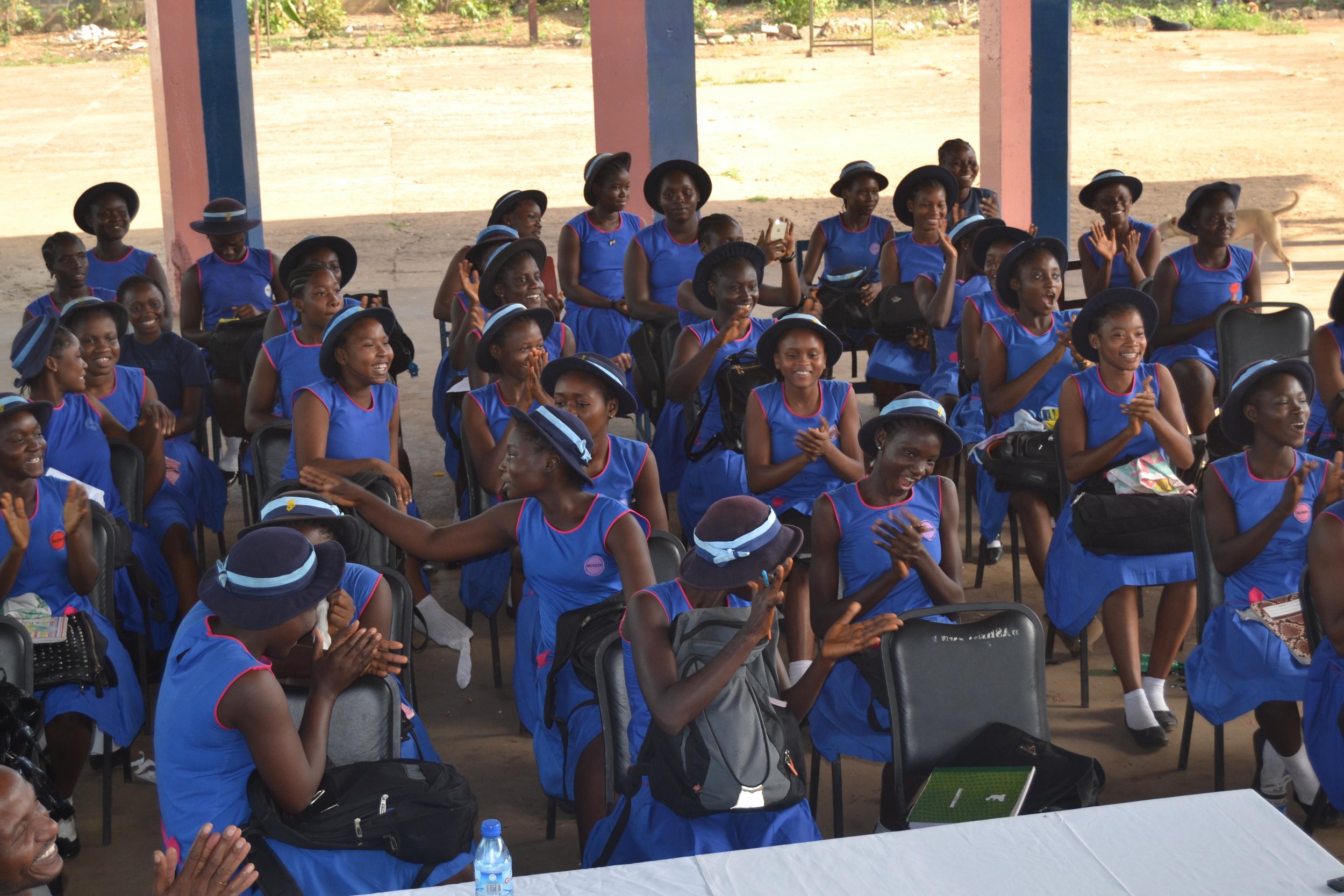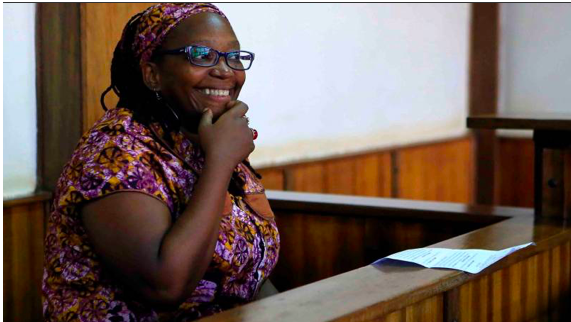Our impact in Africa
PEN Sierra Leone run debating and creative writing workshops with young people, to support a new genersation of writers, thinkers, speakers and actors.
"The statements that PEN produced about the progress on the case give continued visibility to the issue and continue to put the pressure on the government to take action. I think that the advocacy helps, because it is picked up by the local press. I also think that when you write asking for the charges to be dropped, it gives continued updates to many people who may otherwise erroneously think that the charges were dropped." - Stella Nyanzi.
Stella Nyanzi, Ugandan human rights activist and academic.
Journalists, writers, and human rights defenders across the continent face restrictions to the right of freedom of expression through repressive laws, threats, and other forms of harassment used to silence dissent, as well as limits on access to information through the imposition of internet and social media shutdowns. Despite the use by some states of restrictive laws that impinge upon freedom of expression, there were positive steps taken by others to repeal such laws.
The impact of our solidarity work
The Equatorial Guinean artist Ramón Esono Ebalé was freed in May 2018, after having served a six-month jail sentence, followed by a three-month wait for travel documents.
Ethiopian journalists Eskinder Nega, Woubshet Taye and Zelalem Workagegneh were released from prison in April.
"I am humbled by the support PEN International gave me during those difficult year. Thanks for the tremendous support PEN International gave me during my imprisonment. Each word was a moral booster not only to me and my family but also to the whole democratic movement in Ethiopia." - Eskinder Nega
Civil Society Programme impact
“PEN School club and PEN as a whole has impacted my life in so many ways: It helped me to discover my talent in writing which I never knew I had before joining PEN; it helped me know the power I have over my work as a writer; it helped me express my emotions through writing. As a very shy person, PEN helped me make friends and also express myself in front of people. It gave me the opportunity to visit various places both within and outside Sierra Leone. It helped me improve my spoken and written English skills which helped me perform excellently in English when I took my public exams.” – Saffie Koroma, a second-year student at Fourah Bay College, University of Sierra Leone. She was previously a PEN Sierra Leone School club member of St. Joseph´s Secondary School and is now a young adult PEN member.
PEN Afrikaans and PEN Uganda have successfully created inclusive, fertile spaces for literature and language. Furthermore, the centres and their project participants have been able to access spaces to provide opportunities for diverse, dissenting and unknown writers to be heard.
PEN Uganda runs creative workshops for prisoners in the highest security male and female prisons in the country aiming to support inmates to produce high quality creative work as a form of rehabilitation. Throughout the project, the Centre held meetings with prison authorities, including rehabilitating officers, to discuss key ideas and points of concern emerging from the inmates´ creative work. The idea behind these meetings was to highlight the key issues affecting the inmates´ welfare so that the authorities respond to them. Despite initial scepticism, the Centre has been asked, by the prison authorities, to roll out the workshops to other prisons in the country.
PEN Afrikaans has been running creative workshops in rural areas of South Africa, where literacy levels are low, aiming to help to change the perception of Afrikaans as the language of the oppressor, by sharing the stories of rural, black Afrikaans communities. Moryn Hanzen, a project participant, has published a novel as a result of the exposure from the project. Two other participants have self-published poem collections. Several participants were interviewed on national radio, ensuring exposure far beyond what they could have expected otherwise and led to a greater celebration and encouragement of literature and creative writing.
PEN Eritrea launched its website in July 2015, which has since become an important resource and communication platform. Furthermore, PEN Eritrea has gained increased credibility, resulting in other NGOs such as Amnesty International, Human Rights Watch and CPJ becoming reliant on their regional research. In 2017, PEN Eritrea´s executive producer Abraham T. Zere was invited to Human Rights Watch´ office in Washington D.C, to speak about the Eritrean government´s claim that is has improved the conditions in the country.
PEN centres in Uganda, Zambia, Malawi, Myanmar, Sierra Leone and Philippines have gained understanding and knowledge of free expression issues, in addition to confidence in their ability to articulate their concerns. Their voices on freedom of expression issues have become increasingly credible and visible.
PEN centres in Malawi, Myanmar, Zambia, Philippines, and Sierra Leone are part of national coalitions, which work together to influence public opinion and policy.
Advocacy work and campaigns


